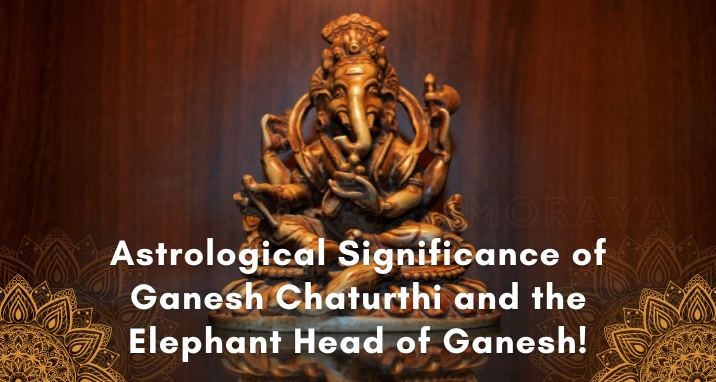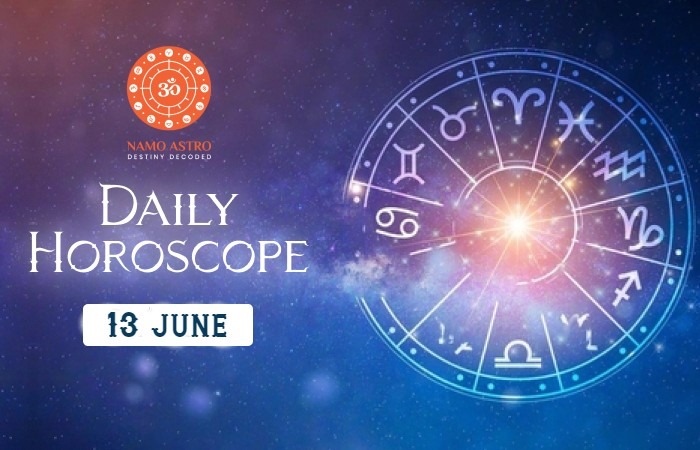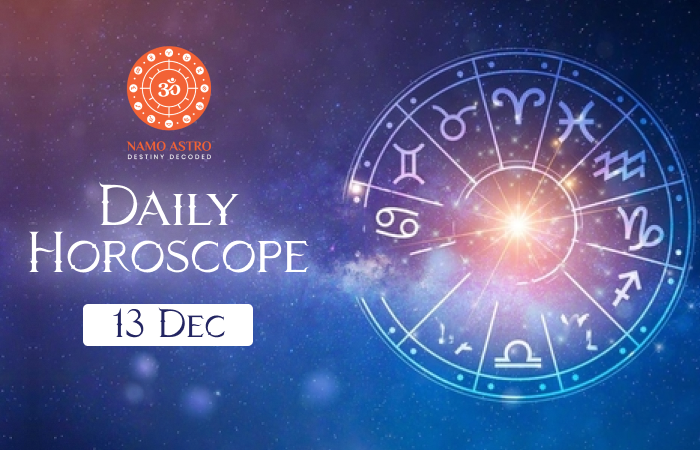What is the Astrological Significance of Ganesh Chaturthi and the Elephant Head of Ganesh?

Ganesh Chaturthi is one of the most loved and joyful festivals celebrated in India. It is a 10-day festival, which begins on Shukla Paksha and ends on Shukla Paksha on the Anant Chaturdashi day. This festival is dedicated to honouring Ganesha. It is celebrated all over India, especially in the states of Maharashtra and Gujarat. The celebrations are a sight to behold. In 2024, the festival will begin on September 7. To know more about the Ganesha Chaturthi 2024, puja Vidhi, muhrat; you can read it here.
Let us tell you about the astrological significance of the Ganesh Chaturthi.
Astrological Significance of the Ganesh Chaturthi
Most of the astrological chart has the image of Shri Ganesha at the top, respecting him and seeking his blessings. He is the deity of knowledge.
Astrologically, the planet Mercury or Budh, is associated with Shri Ganesha. So, worshipping Ganesh on this day gets you the blessings of the Mercury. That becomes all the more important for people with a weak Mercury. Individuals looking for a higher intellect should also worship Shri Ganesha.
Ganesha is also associated with notorious Ketu, the southern node of the Moon. He is the headless tail of the serpent. Bhagwan Ganesha, too, lost his head and got it replaced by the head of the elephant. The trunk of the Ganesha is regarded as the highest serpent energy and he controls it. He carries the Kundalini serpent energy.
These are some of the astrological benefits of Ganesh Chaturthi puja:
- Removes any obstacles that are coming your way.
- Minimises the malefic effects of Mercury.
- Brings fortune and happiness.
- Offering Tulsi to Bhagwan Vishnu on this day makes one mentally strong.
- People also worship him to get knowledge.
One of the astrological practices associated with Ganesh Chaturthi is that it is forbidden to look at the moon on this day. Anyone who does so will get cursed by Mithya Dosham. The reason for this is once the Ganesha was travelling with his Vahan-Mushak, and he was ridiculed by Chandra Dev. It angered Ganesha and he cursed Chandra Dev as a result. He apologised but Ganesha couldn’t nullify the curse. Due to this Dosha, one gets accused of stealing something, even without doing so. Shri Krishna faced this curse when he saw the moon on the Ganesha Chaturthi. He was accused of stealing Syamantaka, a gem. Rishi Narada, who knew about the curse, suggested he observe a fast to come out of the Dosha and he did so.
Significance of the Elephant Head
The story of Bhagwan Ganesha losing his head and then getting the head of an elephant is quite famous. He was created by his mother, Maa Parvati, from the dirt of her body. She then instructed him to guard her while she was taking a bath. And he dutifully prevented anyone from entering. However, when Mahadev visited, he was restricted by Ganesha to enter as well. It led to an argument between the two, and in the battle, Ganesha lost his head. When Maa Parvati came to know about it, she was angered and threatened to destroy everything. Shiva then ordered his followers to bring him the head of a baby whose mother wasn’t attentive to the child. The followers bought him the head of an elephant, which was then placed on the head of Ganesha, who was brought back to life.
The large head of the Bappa represents wisdom. His large trunk is used to push away obstacles from the path, showing his might.
The elephant, which is the mightiest and strongest of all, does not hurt any animal. He gets swayed by kindness and love. The same is true with our beloved Ganesha. He is the most powerful yet most loved, at the same time. Also, the elephant is very dedicated and loyal to people who look after it and love it. The same is true with Ganesha, who is always there for those who love him.
The large ears of Ganesh show that he is a patient listener to all our problems. They also separate the good from the bad. They hear everything but respond to the truth only. Ganesha always listens to a request made from a pure heart.
Shiva is Pasupathi and Ganesha is his manifest form. Ganesha has the head of the elephant, who is the chief of the animals.
One of Shiva’s powers is to transform an object into its original position. Ganesha was made from the dirt of Parvati’s body, which is a representation of material nature and is an illusion. That illusion restricted the meeting of Shiva and Parvati. Shiva replaced it with the head of the elephant, which means ‘memory’. So, it means that the mind has taken the birth to meet the soul. That is why Ganesha is also the representation of the intellect, memory, and divinity. He is the first one to be worshipped; he is the one with these qualities and is honoured first in the 3 lokas.
Finally, the Ganesha Chaturthi is more than a festival or a ritual. It is a spiritual journey and an opportunity, astrologically, to get your things in order. So, make full use of this period, and let go of the past. Let this Ganesha Chaturthi 2024 be a period of fresh beginning, of hope, and of all the auspiciousness in the world.
Frequently Asked Questions
Q: What does the Ganesha elephant head symbolise?
A: The large head of the Bappa represents wisdom.
Q: What is the significance of the day Ganesh Chaturthi?
A: Worshipping Ganesh on this day gets you the blessings of the Mercury.
Q: Which planet represents Ganesha?
A: Bhagwan Ganesha is associated with Mercury.
If you are looking for a professional astrologer to do a detailed astrological analysis of your birth chart, you can consult some of the top astrologers here at NamoAstro. Your first 5-minute online chat with our expert astrologers will be absolutely free!









